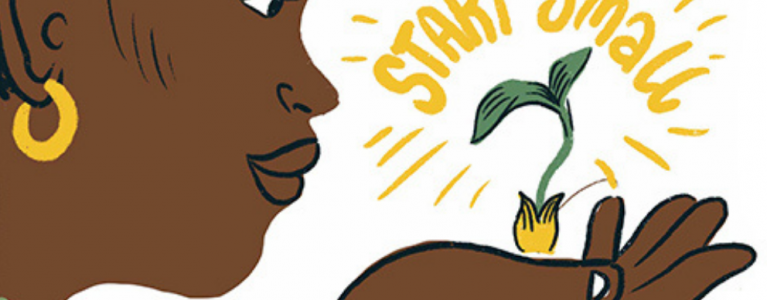
"Let’s recognise everyday Londoners"
“We need community-led decisions”
“Younger generations are vital”
The Commission for Diversity in the Public Realm has been listening to Londoners.
This listening, connecting and collaborating is crucial to understand what makes their experiences of the city feel representative and to decide what initiatives and actions the Commission can develop.
The Commission’s recent announcement of a £1 million grants programme, Untold Stories, has been developed with the insight of many Londoners, through a series of open conversations held between the end of 2020 and beginning for 2021, across which over 400 Londoners attended. These open conversations, we co-hosted with various partner groups, such as Black Cultural Archives, East End Women’s Museum, Queer Britain, Museum as Muck amongst others.
Some of what we heard has been captured in these beautiful illustrations by Somang Lee.
Celebrating Black British histories in London’s public realm
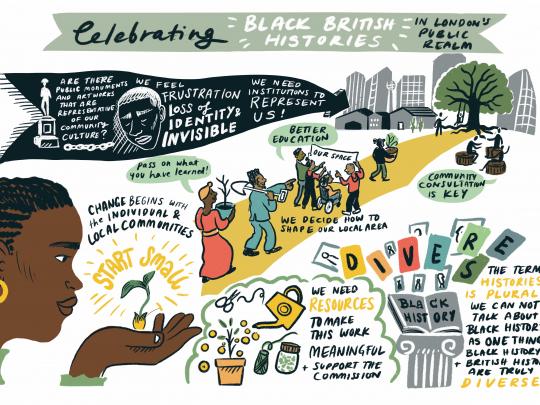
A large arrow points to a town. Statements written across it include “Are there public monuments and artworks that are representative of our community culture?”, "We feel frustration and loss of identity”, “We need institutions to represent us!”
A person stares at a small sapling in his hand. “Change begins with the individual and local communities – start small”.
People walk up a path ready to do some planting. They are saying “pass on what you have learned!”, “Better education”, “we decide how to shape our local area”, “community consultation is key”
Other text includes:
We need resources to make this work meaningful and support the commission.
The term histories is plural. We can not talk about Black history as one thing. Black history and British history are truly diverse.
Celebrating LGBTQ+ histories
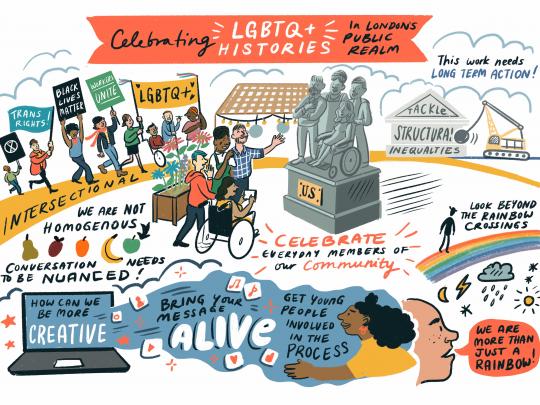
People walk along a path labeled “Intersectional”. They hold up banners that state “Trans Rights!”, “Black Lives Matter”, “Workers Unite” and “LGBTQ+”.
A divers group of people joyously stare at a statue of themselves. “Celebrate everyday members of our community”
A wrecking ball strikes a classical style building. “Tackle structural inequalities – this work needs long term action!”.
Other statements include:
We are not homogenous.
Conversation needs to be nuanced
Look beyond rainbow crossings. We are more than just a rainbow!
How can we be more creative, bring your message alive, get young people involved in the process.
Celebrating women’s histories
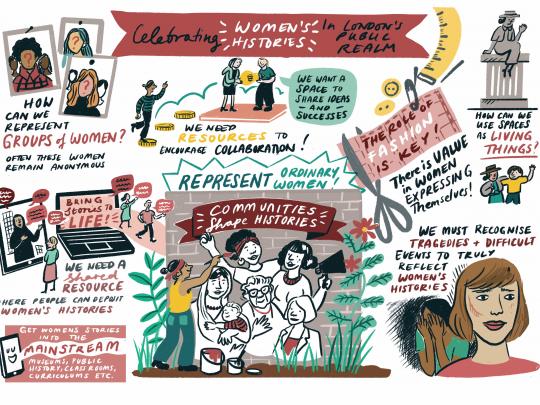
Statements include:
How can we represent groups of women? Often these women remain anonymous.
We need resources to encourage collaboration. We want a space to share ideas and successes.
The role of fashion is key! There is value in women expressing themselves.
How can we use spaces as living things?
Bring stories to life – we need a shared resource where people can deposit women’s histories.
Get women’s stories into the mainstream – museums, public history, classrooms, curriculums e.t.c.
We must recognise tragedies and difficult events to truly reflect women’s histories.
Represent ordinary women!
Communities shape histories!
Celebrating working class histories
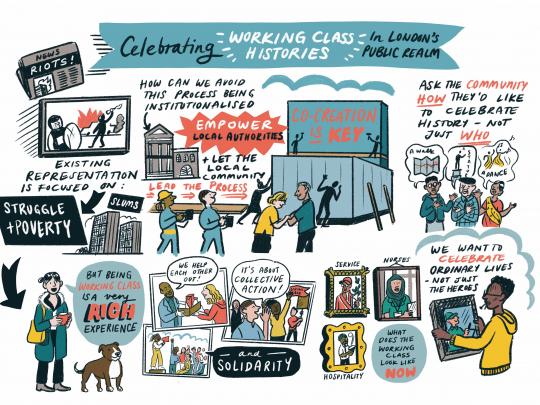
Statements include:
Existing representation is focussed on struggle and poverty. But being working class is a very rich experience. We help each other out. It’s about collective action and solidarity.
How can we avoid this process being institutionalised.
Empower local authorities and let the local community lead the process.
Ask the community how they’d like to celebrate history, not just who.
What does the working class look like now.
We want to celebrate ordinary lives – not just heroes.
We will be sharing illustrations of our discussions around celebrating histories and experiences of disability in London.
All of the common themes have been weaved into the way the ‘Untold Stories’ grant programme is being framed, particularly underpinning its aim is the emphasis that ‘community-led participatory decisions’ are key in making London’s public space more representative. This grants programme aims to give support to individuals, groups and organisations who are part of and led by the communities they serve, to both develop ideas to engage with London’s public realm or if they are at a stage of delivering, the extra support needed in seeing it materialise.
We hope this grant will contribute to the wider vision and aims of the commission, in increasing the diversity of objects in London’s public realm, in telling wider stories of London’s public realm and in having more communities participate in shaping London’s public realm.
Community roadshow analysis – common themes
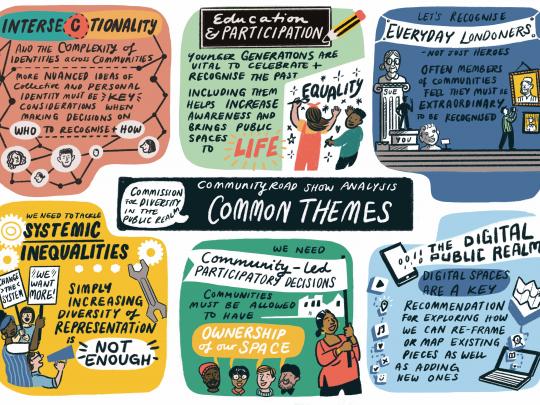
Intersectionality and the complexity of identities across communities. More nuanced ideas of collective and personal identity must be key considerations when making decisions on who to recognise and how.
Education and partnership – younger generations are vital to celebrate and recognise the past. Including them helps increase awareness and brings public spaces to life.
Let’s recognise everyday Londoners – not just heroes. Often members of communities feel they must be extraordinary to be recognised.
We need to tackle systemic inequalities. Simply increasing diversity of representation is not enough.
We need community-led participatory decisions. Communities must be allowed to have ownership of our space.
The digital public realm – digital spaces are key. Recommendation for exploring how we can re-frame or map existing pieces as well as adding new ones.